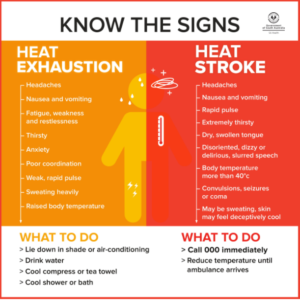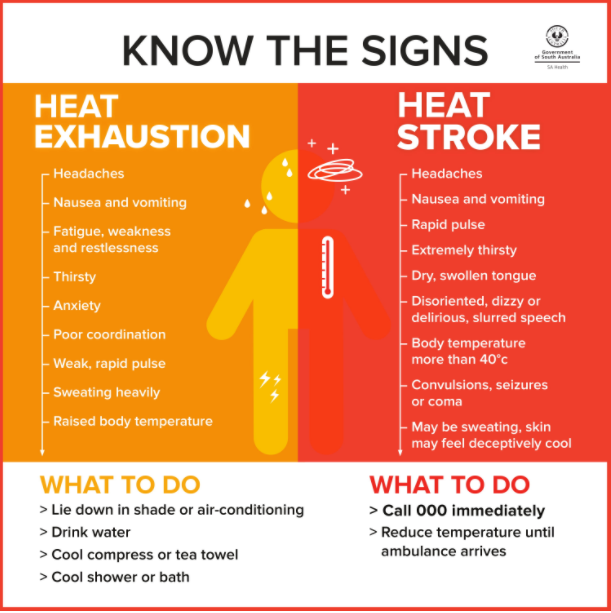Now we know that babies and young toddlers have a higher temperature than most adults, how do we detect signs of heatstroke for babies and young toddlers? We first have to recognize the precursor to
heatstroke symptoms, or referred to as heat exhaustion. Once we are familiar and can easily recognize the symptoms for heat exhaustion, we as parents can try to prevent babies and toddlers to the deadlier heat stroke.
One of the easiest symptoms to recognize heat exhaustion is the increase in body temperature, and also the process of fainting. If these symptoms do happen, we can rush the baby or the young toddler to a cooler place or if possible, air-conditioned facility. Then, we try to feed them some cool water, or help them with a cool shower to reduce the core body temperature.
Some parents may also notice the following additional symptoms: weakness and fatigue; increased thirst; muscle cramps; nausea, irritability; cool, clammy skin; complaining of headache from toddler.
If these signs are not detected soon, heat exhaustion will be elevated to heat stroke and the following symptoms will appear: weakness & dizziness; confusion; severe headache; labored breathing & increased heart rate; loss of consciousness; seizures; flushed hot dry skin; little to no sweating; body temperature of 105 ̊ F (40.5 ̊ C) or higher.
At this time, it is imperative that the baby or young toddler be rushed to the nearest hospital for emergency treatment. Time is critical and every minute counts. Let us be smart and make sure we monitor our babies and young toddlers for the above signs of heat exhaustion as we may be able to prevent further injuries to these fragile beings.
Pic from:
www.checkupnewsroom.com/should-my-child-go-outside-thissummer/
Text sources:


